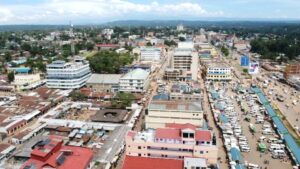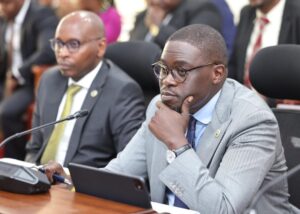Trans Nzoia, Bungoma & Busia counties converse on documenting Indegenious Knowledge

Three western counties of Trans Nzoia, Bungoma and Busia are engaged in a weeklong training on documentation, preservation and application of Indegenious Knowledge (IK) systems in Kenya.
Officials from the cultural-rich counties, community members representing the elderly, youths, special interest groups and opinion shapers have had opportunes to air their views, concerns and proposals in the training that commenced Monday.
The workshop courtesy of the National Museums of Kenya and National Participatory Initiative (NPI) through the mother ministry of Tourism seeks to empower stakeholders through capacity building so they can document and protect their resources.
One of the lead facilitator Mr. Patrick Maundu highlighted a myriad aspects that make Indegenious Knowledge imperative citing that it was a vehicle for development, research as well as for own identity.
Participants discussed expansively on components of of IK including food & nutrition, music & dance, beliefs & systems, traditions & taboos, dressing attires, customs among many and how to document as well as preserve.
Mr. Maundu regretted that due to some form of inferiority complex, quite a number of the indegenious communities tend to shun own traditional indegenious resources such as food varieties in favor of exotic ones.
A comparison between African Indegenious vegetables; the black night shade (sucha), cassava leaves, spiderflower (sageti) and amaranth (mchicha) as juxtaposed to exotic cabbage vegetable indicated that the Indegenious varieties are slightly over 30 times more nutritious.
Similarly, most Indegenious foods such as millet have low glycemic index which is essential for the body and as it makes it hard for one to be diabetic as compared to exotic ones that have a higher index and likely to rise blood sugars.
Western countries have also been cited to have heavily borrowed from the African IK such as the Germans who developed a heart drug from the arrow poison fruit after learning that the natives used it to make poison for their arrows.
In his submissions during the training cum consultative engagement held at a Bungoma hotel, Trans Nzoia county director of Culture Mr. Grievin Wanyonyi noted that systems such as governance and institutions of marriage were born out of Indegenious knowledge.
Mr. Wanyonyi hence underscored the importance of documenting and preserving IK for they shape events of the future while at the same time can be resources that can be tapped into to generate revenue.
His Bungoma counterpart Phanice Wafula explained about the rich heritage of the Bukusu community adding that the county administration was working on modalities to legalize ‘busaa,’ a local brew often used during traditional ceremonies and observed to have no harm as compared to the legalized third generation liqor.
Of much concern to the teams was lack of clear policy frameworks to guide the processes as well as plagiarism with participants airing their views on how well to patent IK and resources to curb exploitation.
Trans Nzoia county Senior Tourism Officer Cate Kerubo indicated that it had taken quite some time for reviews to be made on the Culture Act and that this form of laxity hindered developments in the sector.
“There is also need to build synergies through partnerships and collaborations on tourism and cultural matters among the western circuit counties,” opined Wilberforce Netya, a Public Communications Officer.
The training will be officially opened Tuesday by the host County Executive Committee Member for Gender, Culture, Youths and Sports, Mrs. Charity Kibaba.
^WN




